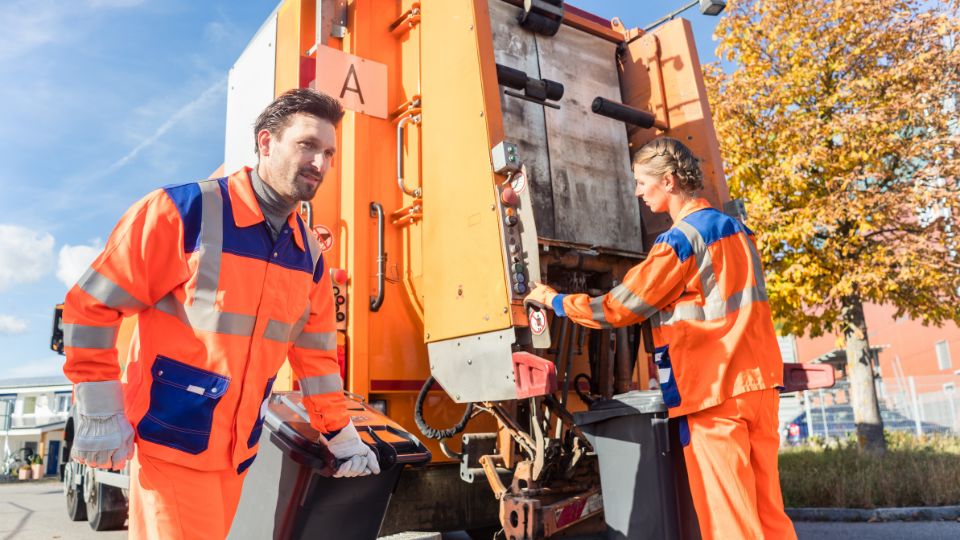
As Net Zero marks the start of a 25-year-plan to reduce emissions to as close to 0 as possible by 2050, many have turned their eye to waste disposal regulations and how we can realistically manage our use of resources going forward.
Getting to this point will require drastic changes across all industries. Gone with the days of a linear economic model in which we take, make, use and throw away our resources, and replace this system with one of a circular model allowing us to maximise the use of our materials.
In order to make this vision a reality, key spokesmen have set about educating the public and business owners on how to properly create an effective waste management strategy.
Disposal of waste regulations are not to be ignored as environmental health is being shined under the spotlight more than ever. Any companies that have broken the rules may face hefty fines or even prosecution in extreme cases.
Make sure you understand the basics of commercial waste disposal regulations in the UK so that you can keep your business compliant and utilise trusted suppliers.
Who enforces waste disposal regulations in the UK?
In the United Kingdom, waste disposal regulations are enforced by several entities at different levels. The primary responsibility for waste management and enforcement lies with the government agencies and local authorities.
Here are the key organisations involved:
- Environment Agency (EA): The Environment Agency is a non-departmental public body responsible for environmental regulation in England. They oversee waste management activities, issue permits, and enforce regulations related to hazardous waste, industrial waste, and other environmental matters.
- Natural Resources Body for Wales (NRW): NRW is the principal environmental regulator in Wales. They enforce waste management regulations and issue permits for waste activities in Wales.
- Scottish Environment Protection Agency (SEPA): SEPA is responsible for environmental protection and regulation in Scotland. They enforce waste management regulations and issue permits for waste activities in Scotland.
- Northern Ireland Environment Agency (NIEA): The NIEA is responsible for environmental regulation in Northern Ireland. They enforce waste management regulations and issue permits for waste activities in Northern Ireland.
- Local Authorities: Local councils play a crucial role in enforcing waste disposal regulations at the local level. They oversee household waste collection, recycling programs, and ensure compliance with waste management guidelines within their jurisdiction.
Did you know that the city of Bristol enforces its own legislation to increase recycling rates?
These organisations collaborate with each other and with other stakeholders to monitor waste disposal activities, promote recycling and sustainable practices, and take enforcement actions against individuals or businesses that violate waste management regulations.
Legally disposing of your rubbish
You may dispose of your own rubbish providing you have a “waste transfer note”, or a receipt showing the following:
- Rubbish disposal site
- Quantity (volume and mass)
- Time of disposal
- A description of the type of rubbish
It’s more common to have a collector remove the trash on your behalf. This business must be a licensed waste carrier and you should check that they have proper documentation before you sign a “duty of care” form.
You can also enquire with the Environment Agency that a collector is licensed.
Just remember, if you allow a collector to handle your rubbish who are not legally covered, you may still be prosecuted, so best to be on the safe side.
Waste Managed have personally vetted all of their suppliers to ensure that all WTNs and DoCs are being documented. We only work with reputable and trusted waste collectors to ensure that as much material directed away from landfills as possible.
Penalties for breaching UK waste disposal regulations
Those who are found to be acting outside of the disposal of waste regulations will be prosecuted or receive a fixed penalty notice. In extreme cases, fines can be issued up to £50,000 and offenders may be imprisoned for 12 months at the magistrates court.
In the case that you are found to have fly tipped rubbish, or your collector has illegibly fly tipped the material, you may be fined up to £50,000 or in extreme cases even face time in prison if you can’t prove that you weren’t responsible for the tipped rubbish.
Those who fail to produce the relevant transfer notes can receive a fixed penalty notice of £300.
There are many who are under the assumption that once they have placed their rubbish into bags or a bin unit, they are no longer responsible for the rubbish in accordance with disposal of waste regulations. This is not the case.
Everyone who produces rubish on site has a responsibility to manage the material until a licensed collector is able to remove the rubbish.
For more detailed info on environmental legislation law you can visit GOV.UK’s commercial rubbish.
Standard criminal offense responses for failing to comply with UK waste disposal regulations
The standard criminal and offence-specific responses for breaching waste disposal regulations are:
- a warning
- a formal caution
- a fixed penalty notice of £300
- a prosecution
The civil sanction that can be imposed on your business is:
- receiving a stop notice

The Environmental Protection Act (EPA) 1990 offences
The following methods for getting rid of rubbish which will cause harm to land are considered as a criminal offence:
- Deposit or knowingly cause or deposit controlled rubbish in or on land unless in accordance with the terms waste disposal regulations
- Treatment, storage or processing of formal rubbish on any lands or by the means of mobile processing machinery outside the control of rubbish disposal regulations or without a proper waste management permit
- Treatment, storage or processing of formal rubbish which may pollute the environment or even cause harm to human and wildlife health. (This offence also applies to circumstances in which a waste management license isn’t required legally).
If convicted of tipping rubbish in the Magistrates court, the maximum punishment for these offences is 12 months imprisonment and /or an unlimited fine. In the Crown Court, it could run to a 5 year jail term or an unlimited fine. Quite a hefty price to pay for littering.
It’s important to note that the offences mentioned above are mainly in connection with businesses rather than private cases (especially those in the waste management sector) than to domestic buildings.
Scope of the duty of care
Duty of care is in reference to any individuals or organisations that produce rubbish, collect rubbish, treat garbage, carry trash and dispose of rubbish. Also referred to as the “waste holder”.
The duty of care applies to those who import, produce, carry, treat, dispose
of, or are a broker who handles controlled rubbish (who is referred to as the “waste holder” ).
The following are considered waste producers:
Rubbish producer
Any person or organisation who is generating waste, such as a shop, school, medical practice or a hairdresser.
If you conduct any activities that changes the nature of the rubbish, you will be considered a producer of waste.
Rubbish carrier
Any person that is involved in the collection, transportation or relocation of waste on a regular basis to various sites. Such individuals must ensure that they complete the appropriate waste transfer notes before loading or unloading the waste between individuals outside of an organisation.
Waste dealer
Any person or business who is involved with the purchase of waste materials for commercial reasons. Examples would include food waste being sold to livestock feed producers (although there are strict regulations making this act far more challenging than in the past due to the risks to the animals’ health it entails).
Rubbish broker
Any persons or businesses that are involved in the collection of waste by third parties to then also be processed in a 3rd party treatment centre would be considered as a waste broker.
Waste brokers have become more popular in recent years due to their well established partnerships with a multitude of waste collectors.
Waste transfer notes still need to be completed during the exchange of waste.
Waste manager
Any persons involved in overseeing all stages of the waste cycle from storage, to collection and then treatment or disposal at a processing centre/landfill.
The duty of care applies for householders is different than that of commercial garbage handlers (the occupant of a domicile), restricted to only handing over waste to a professional collector without the need of a waste transfer notes.
What your duty of care applies to
The following definitions describe common rubbish operations and processes:
Recovery of rubbish
This can be explained as the sorting and breaking down of rubbish to extract materials, components and machinery that may later be treated for the purpose of recycling, as well as removing specific materials for recycling or energy conversion.
One example is generating and collecting energy from incineration. Another is repurposing mechanical components to be resold as spare parts.
Preparing rubbish for re-use
Cleaning, checking and repairing products which have been discarded to be re-used without the need of any form of further processing.
Examples include bikes, woodwork and certain electrical products or equipment which may need to be repaired after it has been discarded by previous owners.
Recycling rubbish
Any action that involves repurposing an item, material or rubbish for further usage. UK waste regulations require that these objects may have been repurposed for their initial purpose, for example waste glass which is graded for blasting and remolding, or playground turf surfaces which have been made from used tyres.
It’s important to note that the burning of materials to generate energy does not fall under this category as well as anabolic digestion.
Disposal of rubbish
This will include actions that don’t involve recovery. This also applies to any functions where secondary tasks are conducted to reclaim substances for energy.
Typically these operations will process waste before being sent to the landfill site.
About the Author

Steve Traviss
Procurement & Sustainability Officer
Steve Traviss is MCIPS Chartered and is extremely passionate about the environment and corporate responsibility when it comes to sustainable waste disposal practices. Steve truly embodies everything we stand for at Waste Managed and in 2022, Steve took part in a world record scuba beach clean up in Thailand which we’re incredibly proud of him for. Steve researches and writes a lot of our blog content on our website and draws off of a wealth of experience in the waste management industry and knowledge of UK environmental legislation.








